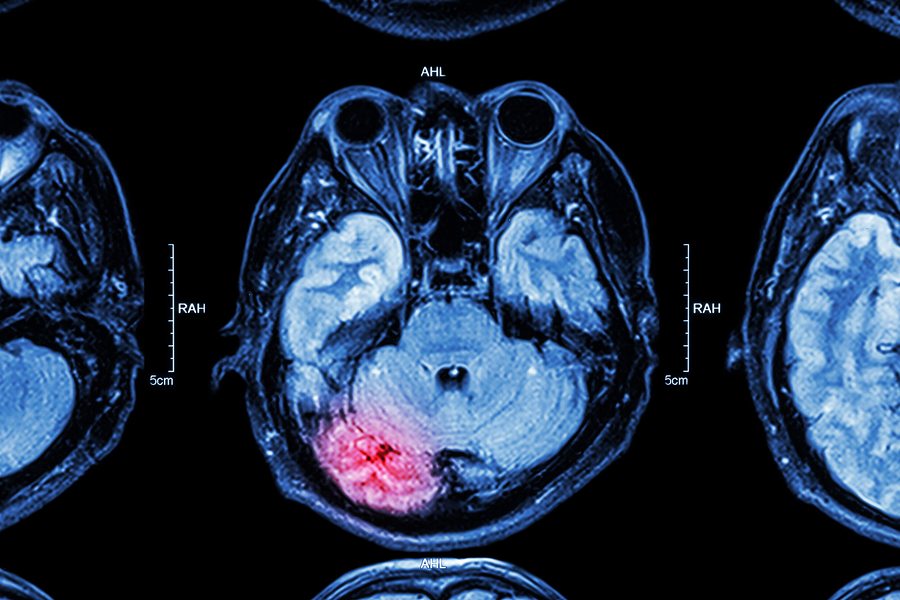A stroke can change your life forever, and make even the simplest tasks seem impossible. Not only can these medical emergencies be devastating but a person may never recover from a stroke and may never be able to return to the workforce.
Fortunately, Social Security Disability is one of the largest Federal programs that can provide assistance to people who have suffered and illness and a resulting disability. As a client with Ken Kieklak, we are committed to making sure you and your family are properly provided for when disabilities disrupt your normal lifestyle. We will battle the federal government for you, and make sure you get the compensation you need and deserve.
Prevalence of Strokes and Their Effects

Stroke is the 5th leading cause of death in the US, with one person dying every 4 minutes as a result. For black people, stroke is the 3rd leading cause of death. There are three main kinds of stroke that typically affect people:
- Ischemic strokes
- Hemorrhagic strokes
- Transient ischemic attacks
The SSA specifically call strokes “Vascular insults to the brain” and further state that a stroke is a brain cell death caused by an interruption of blood flow within or leading to the brain, or by a hemorrhage from a ruptured blood vessel or an aneurysm in the brain.
How severe a stroke is and how greatly it impacts a person depends on the location, the obstruction, and how much brain tissue is affected. For example, if a stroke occurs on the right side of the brain a person may experience:
- Paralysis on the left side of the body
- Vision problems
- Quick, inquisitive behavioral style
If a stroke occurs on the left side of the brain:
- Paralysis on the right side of the body
- Speech/language problems
- Slow, cautious behavioral style
- Memory loss
In addition, how a stroke will affect a person will depend on their age, general health, and their general outlook on their prognosis.
The Blue Book Listing for Stroke
To determine an applicant’s eligibility for Social Security Disability benefits, the SSA consults the Blue Book which is the official guide of disabling conditions. The SSA reviews stroke disability applications under the listing for Central Nervous System Vascular Accident (Section 11.04). To qualify under this listing, your stroke must have resulted in a lasting inability to:
speak or write effectively
OR
coordinate or control the movement of at least two extremities
The Social Security listing book (referred to as the blue book) evaluates cerebral vascular accidents (strokes) under impairment listing 11.04, Central Nervous System Vascular Accident. The listing criteria state that there must be one of the following more than three months after the stroke.
- Sensory or motor aphasia (damage to the region of the brain that is responsible for language or speech caused by the stroke) that results in ineffective communicating abilities or speech; or
- Severe and constant disorganization of motor function (paresis or paralysis, involuntary movement or tremor, ataxia, or sensory disorders) in two extremities that causes sustained disorder of an individual’s gait and posture or gross and dexterous movements (assessment of the impairment of motor function depends upon how much it interferes with walking, standing, etc. and/or the use of fingers, hands, and arms).
Furthermore, in order to qualify for benefits under this section of the Blue Book, you will need medical evidence of either sensory or motor aphasia that negatively impacts your ability to speak or communicate. However, in order to qualify for medical benefits for a stroke, you must demonstrate that you will suffer or have suffered a severe impact that will last or has lasted 12 months. Furthermore, Social Security will not consider whether you are entitled to benefits until at least three months have passed.
Can You Qualify for Disability Benefits Under Another Listing?
Social Security Administration’s impairment listings and specific neurological and physiological effects associated with stroke, such as:
- Aphasia — Problems with speaking, writing or understanding language
- Ataxia — Impaired motor function, namely impairment of two extremities that interferes with ability to walk, balance or grasp objects
- Hemiplegia — Total or partial paralysis of one side of the body
- Vision loss — Blindness or significant loss of field of vision
Other common complications of stroke include cognitive deficits, memory problems, seizures, pneumonia, blood clots, bedsores, and depression.
Work with an Experienced Arkansas SSDI Lawyer
For more than 20 years, Ken Kieklak has fought for people who are unable to work through no fault of their own due to a disability, impairment, or serious long-term illness. Ken understands that you never asked for this condition and fights aggressively and strategically against claims examiners and administrative law judges who may mischaracterize or condition or minimize the serious impacts it has on your daily life and your ability to work. If you cannot work due to a serious disability or impairment call SSDI attorney Ken Kieklak today at (479) 316-0438 for a free and confidential consultation.
